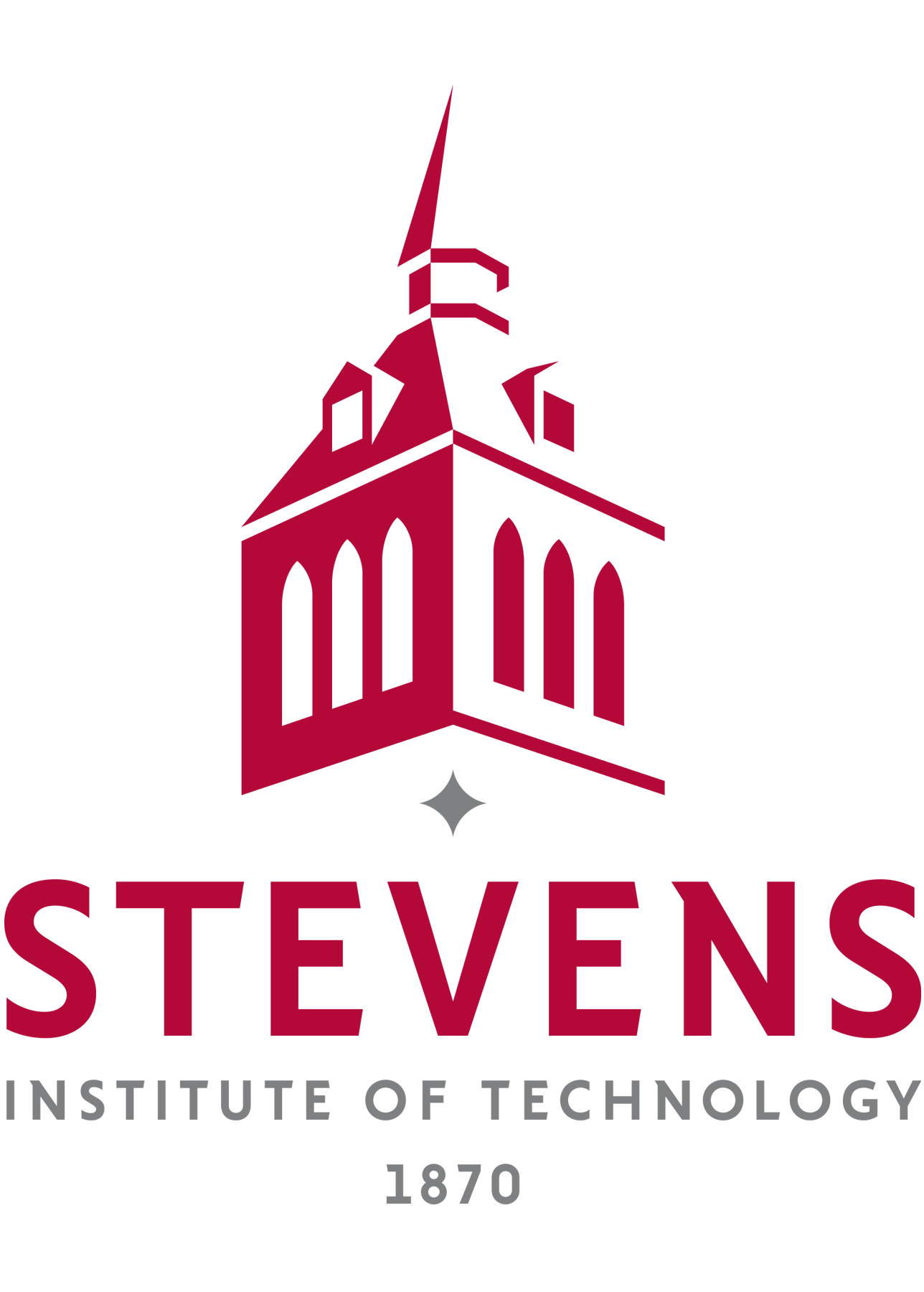A master’s in construction management degree allows students to continue their education and gain the credentials needed to take on more advanced leadership roles in their field. Possible job options with this degree include construction manager, architectural or engineering manager, civil engineer, and project management specialist. According to the Bureau of Labor Statistics (BLS), the average salary for a construction manager is $101,480 per year, and architectural and engineering managers earn even more, averaging $159,920 per year.
A master’s in construction management degree program generally takes 1-2 years of full-time study to complete, with a range of 30-48 credits required to graduate. The average cost of graduate school tuition for the 2021-22 school year was $20,513, and the average total cost of a master’s degree is $59,684.
Why Trust Us
The Intelligent.com Higher Education Team is dedicated to providing students with independent, equitable school and program rankings and well-researched resources. Our expert-driven articles cover topics related to online colleges and programs, paying for school, and career outlooks. We use data from the U.S. Department of Education’s College Scorecard, the National Center for Education Statistics, and other reputable educational and professional organizations. Our academic advisory team reviews content and verifies accuracy throughout the year for the most current information. Partnerships do not influence rankings or editorial decisions.
- Analyzed over 2,000 national, accredited, and nonprofit colleges and universities
- 800+ rankings pages are reviewed and updated yearly
- Content is informed by reputable sources, surveys, and interviews with academic advisors and other experts
- Over 100 data points are reviewed for accuracy and quality throughout the year, including sources
How we rank schools
Our list features the best Construction Management degree programs at top colleges nationwide. Each school featured is a nonprofit, accredited institution — either public or private — with a high standard of academic quality for post-secondary institutions.
We evaluated each school’s program on tuition costs, admission, retention and graduation rates, faculty, reputation, and the student resources provided for online students. We collected data from trusted sources like the National Center for Education Statistics, individual school and program websites, school admissions counselors, and other data sources. Then, we calculated the Intelligent Score on a scale of 0 to 100 based on the following criterion:
Academic Quality:
- Admission rate versus enrollment rate
- Retention rate of students who return after year one
- Accreditation status (regional and programmatic)
- Nonprofit status, both private and public institutions
Graduation Rate
- Overall graduation rate
- Total number of currently enrolled students, including diversity metrics
- Student-to-faculty ratio
Cost and ROI
- In-state and out-of-state per-credit tuition rates and fees
- Required credits to graduate
- Earning potential after graduation
- Availability of federal student loans, scholarships, and other financial aid options
Student Resources
- Available student services for online-only and hybrid programs
- On-campus amenities like tutoring centers and the number of libraries
Read more about our ranking methodology.
Best 20 Accredited Master’s in Construction Management Degree Programs
FiltersInstitution Type
Status
- Intelligent Score
- Alphabetically By University Name
- Acceptance Rate
- Enrollment
- In-state Graduate Tuition
- Out-of-state Graduate Tuition
- In-state Undergraduate Tuition
- Out-of-state Undergraduate Tuition

Clemson University
Intelligent Score: 98In-state: $14,118
Out-of-state: $37,110
In-state: $10,600
Out-of-state: $10,600
SAT: 1210-1390
ACT: 27-32
In-State: $889
Out-of-State: $1,851
On-Campus
American Council for Construction Education
30

Columbia University
Intelligent Score: 96.25In-state: $57,864
Out-of-state: $57,864
In-state: $49,024
Out-of-state: $49,024
SAT: 1460-1570
ACT: 33-35
$2,536
On-Campus
Middle States Commission on Higher Education
36

Louisiana State University
Intelligent Score: 95.64In-state: $8,038
Out-of-state: $8,038
In-state: $9,132
Out-of-state: $9,132
SAT: 1090-1300
ACT: 23-28
In-State: $786
Out-of-State: $1,572
On-Campus
American Council for Construction Education
30-36

University of Southern California
Intelligent Score: 93.54In-state: $59,260
Out-of-state: $59,260
In-state: $47,880
Out-of-state: $47,880
SAT: 1340-1530
ACT: 30-34
$2,424
On-Campus
WASC Senior College and University Commission
32

NYU Tandon School of Engineering
Intelligent Score: 93.38In-state: $52,204
Out-of-state: $52,204
In-state: $34,704
Out-of-state: $34,704
SAT: 1370-1540
ACT: 31-34
$2,335
On-Campus
Middle States Commission on Higher Education
30

Central Connecticut State University
Intelligent Score: 89.06In-state: $6,162
Out-of-state: $18,436
In-state: $7,674
Out-of-state: $7,674
SAT: 970-1150
ACT: 19-25
In-State: $809
Out-of-State: $825
On-Campus
New England Commission of Higher Education
33

Arizona State University
Intelligent Score: 88.43In-state: $10,710
Out-of-state: $28,800
In-state: $11,720
Out-of-state: $11,720
SAT: 1100-1320
ACT: 21-28
In-State: $1,016
Out-of-State: $1,508
On-Campus
American Council for Construction Education
30

Stevens Institute of Technology
Intelligent Score: 88.35In-state: $53,828
Out-of-state: $53,828
In-state: $37,414
Out-of-state: $37,414
SAT: 1320-1480
ACT: 31-34
$1,864
On-Campus, Online
Middle States Commission on Higher Education
30

Wentworth Institute of Technology
Intelligent Score: 87.99In-state: $35,970
Out-of-state: $35,970
In-state: $38,600
Out-of-state: $38,600
SAT: 1090-1280
ACT: 23-28
$1,235
On-Campus, Online
American Council for Construction Education
30

Virginia Tech
Intelligent Score: 87.43In-state: $32,274
Out-of-state: $36,090
In-state: $44,444
Out-of-state: $44,444
SAT: 1210-1410
ACT: 26-32
In-State: $476
Out-of-State: $959
On-Campus
Southern Association of Colleges and Schools Commission on Colleges
32

Florida International University
Intelligent Score: 87.27In-state: $4,721
Out-of-state: $16,529
In-state: $8,912
Out-of-state: $8,912
SAT: 1110-1260
ACT: 23-29
In-State: $633 - $760
Out-of-State: $906 - $1,087
On-Campus
Southern Association of Colleges and Schools Commission on Colleges
30

SUNY Environmental Science and Forestry
Intelligent Score: 86.75In-state: $7,070
Out-of-state: $16,980
In-state: $11,310
Out-of-state: $11,310
SAT: 860-1060
ACT: N/A
In-State: $471
Out-of-State: $1,020
On-Campus
Middle States Commission on Higher Education
30

Everglades University
Intelligent Score: 86.66In-state: $17,520
Out-of-state: $17,520
In-state: $19,200
Out-of-state: $19,200
SAT: N/A
ACT: N/A
$925
On-Campus, Online
Southern Association of Colleges and Schools Commission on Colleges
36

University of Oklahoma
Intelligent Score: 86.55In-state: $4,788
Out-of-state: $20,169
In-state: $6,943
Out-of-state: $6,943
SAT: 1100-1300
ACT: 23-29
In-State: $370
Out-of-State: $1,070
On-Campus
Southern Association of Colleges and Schools Commission on Colleges
32

Worcester Polytechnic Institute
Intelligent Score: 86.23In-state: $53,100
Out-of-state: $53,100
In-state: $28,980
Out-of-state: $28,980
SAT: N/A
ACT: N/A
$1,610
On-Campus, Online
New England Commission of Higher Education
30

Thomas Jefferson University
Intelligent Score: 86.2In-state: $40,680
Out-of-state: $40,680
In-state: $21,420
Out-of-state: $21,420
SAT: 1090-1270
ACT: 20-27
$1,190
On-Campus, Online
Middle States Commission on Higher Education
36

North Dakota State University
Intelligent Score: 85.35In-state: $8,606
Out-of-state: $12,909
In-state: $7,013
Out-of-state: $7,013
SAT: 1028-1243
ACT: 20-26
In-State: $638
Out-of-State: $958
On-Campus
Higher Learning Commission
30-31

Kennesaw State University
Intelligent Score: 83.5In-state: $4,450
Out-of-state: $15,704
In-state: $5,328
Out-of-state: $5,328
SAT: 1030-1200
ACT: 19-25
In-State: $296
Out-of-State: $1,066
On-Campus
American Council for Construction Education
36
How to Choose a Master’s in Construction Management Degree Program
Choose your area of study
Master’s in construction management degree programs may offer specializations in areas such as cost estimation, sustainability, or real estate development. Consider what your career goals are and what projects you enjoy the most when deciding on an area of study. Cost estimation may be a better fit for those who enjoy crunching numbers, while sustainability fits well with those who want to make a positive impact on the environment.
You’ll also need to consider how school fits into the rest of your life. An in-person program may be more beneficial for those who need face-to-face interaction to learn, while online degree options help those who are already juggling families and full-time jobs.
Research schools and programs
There are dozens of schools across the country that offer a master’s in construction management degree, so evaluate each potential institution carefully to determine if it’s a good fit. If you’re attending in person, you’ll be limited somewhat by location, but online programs let you study from anywhere. When choosing a school, make sure it’s accredited either regionally or nationally to ensure you’re getting a legitimate degree that employers will accept.
Narrow down your choices to the top 3-5 by looking at their websites, talking to admissions counselors, and attending open house sessions. Following the college on social media can also give you a better idea of what is available and the overall culture.
Prepare for tests and applications
Graduate programs vary greatly in what is required to apply, so always check the specific admissions requirements for the school and program you’re looking at. Schedule an appointment with an admissions counselor to go over your credentials and see what you still need to gather.
At a minimum, you will need transcripts for your undergraduate work and a bachelor’s degree from an accredited program. Other common requirements include GRE scores, a personal statement detailing why you’re interested in the program, and letters of recommendation.
Select your program
The next step is to choose the program that’s the best fit and start the application process. Determine whether you want to study full-time or part-time by thinking about how much time you have for school and your overall goals. If you’re trying to get a promotion into a management role in the next two years, a full-time schedule supports this. If you can only fit one class a semester into your schedule and budget, part-time is a better option. If you’re considering an online program, check whether classes are delivered asynchronously or synchronously to ensure it matches your availability.
Determine how you’ll pay for your degree
While federal grants and loans aren’t an option for graduate degrees, there are still programs that can make paying for a master’s in construction management more affordable. Some employers provide tuition reimbursement as a benefit, especially if the degree is in the same industry. Many schools also offer assistantships and merit- and need-based scholarships.
If you’re interested in these options, fill out the Free Application for Federal Student Aid (FAFSA). Most schools use this to determine eligibility for financial aid at the institutional level.
What Can You Expect From a Master’s in Construction Management Degree Program?
Students pursuing their master’s in construction management degree can expect to learn how to plan and organize construction projects and how to analyze factors such as the cost of materials and labor. They will also learn about safety and quality control and how to be an effective leader who can reduce risks and liabilities while adhering to schedule and design limitations. Students will learn about how ethics and sustainability factor into construction projects and how to use software programs and other resources to plan, manage, and execute projects.
A master’s in construction management degree program takes one to four years to complete, depending on the number of credits required and whether you are studying full-time or part-time. Most graduate programs for this field involve a capstone project that requires students to apply their knowledge and skills to a real-world project. Others may allow students to complete a thesis or final comprehensive exam to demonstrate mastery.
Potential courses you’ll take in a master’s in construction management degree program
- Advanced Estimating. Students in this course will be introduced to advanced concepts regarding cost estimates for construction projects. Other covered concepts include bidding ethics and using computer software to automate estimating.
- Construction Contracts and Law. This course explains the laws that govern construction contracts. Students will cover advanced topics in contract law and how to create contracts that adhere to the legal codes. Other topics may include how future changes to the industry may impact laws and how to deal with disputes.
- International Construction Management. This course is geared toward students who plan to work for international businesses. It covers how international laws and procedures impact the construction industry and how to work within the global market. Students evaluate and analyze case studies to see how concepts are applied in the real world.
- Advanced Proposal Writing. Students taking this course will learn how to apply research methodologies to the construction industry. This course usually concludes in an end-of-semester project where students research, prepare, and submit their own proposal.
- Construction Scheduling. This course is focused on learning how to plan construction projects and ensure they stay on track. Students use industry software to create mock schedules.
Master’s in Construction Management Degree Frequently Asked Questions
How do I apply to a master's in construction management degree program?
To apply for a master’s in construction management degree, you will need to have a relevant bachelor’s degree from an accredited program in a related field, such as civil engineering or construction. Most schools require that you have at least a 2.75 GPA for your undergraduate degree shown on an official transcript. You may also need to submit your GRE scores, provide a resume or goal statement, and show letters of recommendation from employers or previous instructors.
Before submitting your application, talk with a graduate admissions counselor at the institution you’re planning on attending. They can provide specific information on what you need to apply, what can increase your chances of being accepted, and any application deadlines.
How much does a master's in construction management degree cost?
According to the Education Data Initiative, the average cost of a graduate degree is $59,684. However, this varies by degree type, whether you’re paying in-state or out-of-state tuition, and whether it’s a public or private institution. The average tuition cost for a master’s degree in the 2021-22 academic year was $12,596 for a public institution and $28,017 for a private institution.
When considering the cost of a master’s in construction management degree program, remember that there are additional expenses outside the tuition rate. You will need to pay for books and supplies, and some courses may have extra fees. While online programs aren’t necessarily cheaper than in-person programs, they may save you money on transportation costs and facility fees. However, you may end up needing to upgrade your computer setup to handle advanced software requirements or invest in equipment like a webcam for remote classes.
How long does it take to earn a master's in construction management degree?
Most master’s in construction management degrees require 30 to 48 credits to graduate. Full-time students can complete this in 1-2 years, while students who attend only part-time will need 2-4 years, depending on how many credits they take per semester. Most full-time graduate students take 2-3 classes per semester.
Online programs can help students who have full-time jobs or family responsibilities complete their programs more quickly because they have more flexibility when it comes to when they do coursework. However, many in-person programs have classes in the afternoon and evening or on weekends to accommodate those who work.


